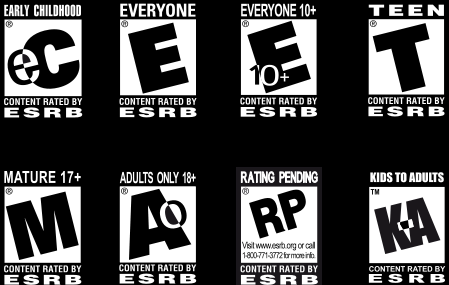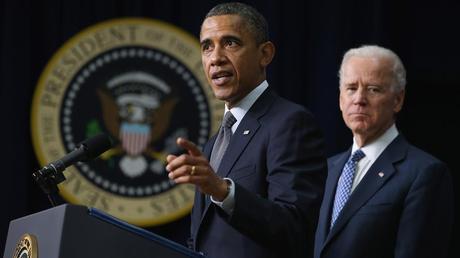
In 2008 I wrote a college paper titled, “The Backlash Against Violence in Video Games.” At the time, the latest Grand Theft Auto title has just been released and some of the best-selling video games came from “shooter” franchises like Call of Duty, Gears of War, and Metal Gear Solid. In fact, according to NPD (via BitgGamer), four of the top five games sold on the Xbox 360 were heavy on gun violence. So, just as with movies and other media, it was an era when violent content moved the needle on unit sales.
I won’t bore you with my paper’s bullet-by-bullet arguments, so let me sum up my findings. After carefully researching both sides of the argument, I concluded that, at worst, certain violent games may increase short-term aggressive behavior in its players based on some case studies, but that there were no conclusive ties between violent video games and any kind of meaningful increase in long-term aggression, much less full-on youth violence. A key reference source I used showing a downward trend in youth violence can be found here. As a gamer myself, I also acknowledge that games are more real than ever, and you wouldn’t be human if some of the moments in these games did not stir up emotions within you. Games are more interactive than other mediums and as such, we are sometimes more emotionally invested in the decisions we make within them.
With that in mind, I also advocated responsible parenting in my paper: Know the ratings of the games your kids are playing. Sure, kids can sneak an M-rated game at a friend’s house (just like we sneaked an R-rated movies back in the day), but it’s at home where the lion’s share of gaming will usually take place, so responsible parenting matters. I will protect my kids from inappropriate games just as I will protect them against any inappropriate TV, movies…heck, even certain people.

Know your video game ratings, parents!
But let me look at it a different way. It is reasonable to assume that killing baddies in a first-person shooter war game like Call of Duty may pump up a kid’s adrenaline levels and bump up the aggressiveness quotient, but so many other things can accomplish that same result. A TV show, a movie, competitive sports (or competition of any kind, one study found). One flaw I found in testing was that researchers had trouble identifying whether kids were more aggressive because of the games or whether those kids were already inclined to aggression and violent game-playing just reinforced that behavior. Then there’s the spooky business about defining aggression and even violence—numerous scientists disagree on what’s what. That point of contention alone can send this topic into an interminable tailspin.
Look, I’m not blinded by bias as a gamer. Just because there has been no conclusive evidence found to date, that doesn’t mean we don’t continue researching and studying the matter. I’m perfectly fine with and even support President Obama’s call to Congress to fund more research around the matter. More knowledge is a good thing here. Maybe with the right backing, we can come closer to finally putting some authority and credibility behind the research.

Let’s get some real money for some real science
What I don’t appreciate is politicians and media pundits using recent tragedies like Sandy Hook, Aurora, Colorado, Virginia Tech, and even as far back as Columbine as a bully pulpit for drawing baseless conclusions and needlessly stirring up the American public. A U.S. senator (R) from Tennessee went on live TV and said the following: “I think video games is a bigger problem than guns, because video games affect people.” Some of us actually look up to our politicians, so this kind of absurd yet potentially influential fear-mongering is dangerous. Then you have CNN’s Erin Burnett directly blaming video games for the recent rise in these mass shootings, calling her baseless conclusion, “Accepted as a fact.” (Skip to 3:10 in video)
Source: YouTube via Polygon
So let’s cut through the noise. I do believe modern games can be art forms, which necessarily makes them potentially influential on its users. Other media can trigger a range of emotions. Certain songs can rile you up. A movie can depress you. A TV show can make you bawl. An idiotic talking head on CNN can make you angry. A video game can do all of these things too. And even if certain competitive video games can stir up some aggression (I know I’ve felt it at times), how do we get from a bump in youthful aggression to the heinous mass killing of innocent people? That’s the thing, we don’t get there. We can’t get there. That correlation will never be drawn definitively. Or even inconclusively for that matter. So can we take that ridiculousness off the table at least?
At best we can gain some knowledge and insight through further studies which, by the way, should spread out beyond just video games; but hey it’s a start. I’m all for sensible, rational dialog grounded in reality. I think we should also acknowledge that maybe we’ll never truly find satisfying, cathartic answers to why unthinkable tragedies like Sandy Hook and Aurora happened. Senseless violence has been around long before any form of media was invented to become its convenient scapegoat.
Let’s place the big question in its proper context and let some science do the talking for a change.
——
Additional links and sources:
A great visual look at 25 video game violence studies, summarized
Perception is powerful: Survey showing what a group of parents think about the matter
Article analyzing 25 years of research
(All additional links and sources courtesy of Kotaku)
